Keelung City - 基隆市
DPP: Nominated legislator Tsai Shih-ying (蔡適應) on July 22.
Others: The NPP has nominated a candidate for mayor here, city councilor Chen Wei-chung (陳薇仲). Independent candidate Huang Hsi-hsien (黃希賢) left the KMT in 2021. One other political novice registered -- a poet named Tseng Kuo-min (曾國民).
T-PVI: B+7
Notes:
- This is one of the more interesting races in this cycle. Both major party candidates have held the Keelung legislative seat: Hsieh from 2008-2016, and Tsai from 2016-present.
- Keelung used to be reliably blue until 2016, when Tsai won the LY seat here in a major upset. He beat former Taipei mayor Hau Lung-bin, who parachuted in (and shoved aside Hsieh) because he thought it would be a relatively easy seat to win. Oops.
- Keelung has had a DPP mayor for the last eight years, but it still leans blue, and the presence of an NPP candidate will probably hurt Tsai more.
- Conversely, the KMT has suffered some really damaging intra-party splits here in the recent past, and Huang could steal some votes from Hsieh. Huang was a leading supporter of Han Kuo-yu in the 2020 presidential campaign, but has more recently also welcomed support from other parties and sought to position himself as part of a "Third Force" in Keelung.
- Update 9.26: Popular incumbent DPP mayor Lin Yu-chang (林右昌) is taking a prominent role in Tsai Shih-ying's campaign to be his successor.
- 2022.10.5-7: Hey, somebody finally polled Keelung! And it's TISR! Excellent. There's a lot to learn from this one. Headline number is Hsieh narrowly leading Tsai, 31-28%. The NPP's Chen Wei-chung is pulling 5%, with former KMT member Huang Hsi-hsien getting only 1%. Hsieh is getting about 80% of KMT supporters, and Huang only 3%. Among DPP partisans, Tsai is getting only 71%, Hsieh has 8% (!), and the NPP's Chen has 4%. Both camps are split here, but Hsieh appears to be doing better holding on to pan-blue voters than Tsai is pan-green. That might make the difference. I'm surprised the KMT renegade candidate Huang isn't registering any support in this poll.
Result: KMT gain. Hsieh Kuo-liang wins, 52.9-39.0%.
Yilan County - 宜蘭縣
DPP: Nominated Yilan City mayor Chiang Tsung-yuan (江聰淵).
Others: The TPP has nominated party caucus director Chen Wan-hui (陳琬惠) here. Update 9.2: Three others.
T-PVI: G+6
Notes:
- Yilan has traditionally been a DPP stronghold, and winning this office launched the political careers of prominent DPP leaders Chen Ding-nan (Minister of Justice during the Chen Shui-bian era) and You Si-kun (the current Speaker of the Legislative Yuan). Before Lin, the only KMT member to win here in the democratic era was Lu Kuo-hua (呂國華) in 2005. But the DPP entered the 2018 campaign divided: the party's nominee, Chen Ou-po (陳歐珀), was picked over the acting DPP magistrate, Chen Chin-te (陳金德), who himself was at odds with his DPP predecessor Lin Tsung-hsien (林聰賢), who had left to lead the Council of Agriculture. Chen Ou-pu never managed to unify the DPP base behind his candidacy, and Lin Zi-miao was the beneficiary.
- In January 2022, prosecutors announced that Lin was under investigation for bribe-taking and other political corruption dating to her time as Luodong Township mayor. The KMT tried to paint these accusations as politically motivated, and Lin remains in the race.
- Chiang Tsung-yuan is the two-term mayor of Yilan City, the county's most populous jurisdiction.
- Chen was ranked 9th on the TPP's party list in 2020, not high enough to enter the legislature.
- Update 8.24: Lin Zi-miao, her daughter, 10 other county officials, and five other people have been formally indicted by Yilan County prosecutor's office for corruption, forgery, and money laundering. Lin is accused of accepting illegal payments when she was head of Luodong Township, and later as Yilan mayor helping to cover up illegal conversion of agricultural land to urban use. She says the charges are politically motivated and remains in the race.
- 2022.10.11-15: RWNews online poll is rather surprising, given Lin's corruption charges: she is still comfortably ahead of Chiang, 53-31%, with the TPP's Chen at 5.5%. Yeesh. What a bad result for the DPP here.
- 2022.10.19-21: Liberty Times with an in-house poll of this race, which finds a much closer race: Lin in the lead with 37% to Chiang's 30%, with the TPP's Chen at 4%. But Lin is still ahead even in this poll from an outfit with a strong green house effect. Not looking great for the DPP here a month out.
Update 10.26: Leans KMT. Recent polling indicates Lin is holding on despite the corruption charges, and Chiang hasn't made much progress here. I have no local knowledge about what is going on in this race, but if Chiang was going to consolidate the green camp behind him it should have happened by now. Two polls from very different outlets using different methods both find him stuck in the low 30s -- in Yilan! Lin Zi-miao is enjoying the advantages of incumbency, I guess? Rating change to Leans KMT.
Result: KMT hold. Lin Zi-miao wins 50.8-41.1%.
Hsinchu City - 新竹市
DPP: Nominated deputy mayor Shen Hui-hung (沈慧虹), also on June 22.
Others: The TPP has nominated party-list legislator Kao Hung-an 高虹安. The NPP may also field a candidate here. Update 9.2: In the end, the NPP did not endorse a candidate; 3 independents registered.
T-PVI: B+3
Notes:
- Incumbent mayor Lin Chih-chien was term-limited out. He resigned as mayor to take up the DPP's nomination for Taoyuan, then had to withdraw from that race on August 12.
- Shen is a career civil servant who joined the DPP only in June. She spent her career in the Taipei city government, working on transportation issues under both DPP (Chen Shui-bian) and KMT (Ma Ying-jeou and Hau Lung-bin) mayors. Lin Chih-chien appointed her head of the transportation department in Hsinchu in 2014, and deputy mayor in 2016.
- Both the NPP and TPP could play spoiler roles here; many Hsinchu voters have been willing to support third-party candidates in recent years. In 2016, the NPP fielded a candidate against the DPP's caucus whip Ker Chien-ming (柯建銘) in violation of its pre-electoral pact (Ker squeezed out a win anyway), and in 2020, the KMT candidate Cheng Cheng-ling (鄭正鈴) won here with only 37% of the vote when the DPP and NPP candidates split the rest.
- The TPP's Kao is a party-list legislator without much of a public profile before 2020, but she's got a background that matches Hsinchu's high-tech aspirations: a PhD in mechanical engineering from an American university, and several years experience working at Foxconn (鴻海) as an aide to Terry Gou. This will be a test of whether the TPP can cultivate candidates who will emerge out of the shadow of Ko Wen-je and be competitive in local races.
- Update 10.26. The plagiarism accusations flying around in what seems like every race in Taiwan have now been hurled at both Kao and Lin as well. Kao seems more vulnerable because her campaign appeal is based in part on having an engineering PhD from an American university; the criticism is that she used materials from previous papers and a report she was lead author on in her dissertation without proper attribution. Now the institute she worked for, the government-funded Institute for Information Industry, is suing her for improperly using their copyrighted materials in her dissertation. To my eyes this might be sloppy but it's not in the same category as copying someone else's work to get an MA degree, and it looks like a partisan hit job.
- 2022.7.15-22: An early TVBS poll here finds a very close three-way race, with Lin at 27%, Kao at 26% (!), and Shen at 23%. That suggests Kao is a viable candidate here, and strategic voting might actually lead some green-leaning voters to abandon the DPP's Shen instead.
- 2022.10.4-8: RWNews online poll shows a rather shocking turn here: Kao leads the race with 37%, with Shen at 30%, and Lin at 25%.
- 2022.10.19-24: ETToday poll reports similars results as RWNews: Kao leads the race with 38%, to Shen's 32% and Lin way in back with 18%. If these latest polls are at all accurate, strategic voting appears more likely to hurt Lin than Shen. At the least it's clear Kao has a real shot to win, which is probably why the plagiarism attacks on her are so vicious.
- 2022.10.21-26: TVBS polls Hsinchu again, finds Kao Hung-an in the lead with 34% to Shen Hui-hung's 27% and Lin Geng-ren at 21%. If even TVBS with its strong blue house effect finds the KMT nominee Lin in 3rd place, then he's really in trouble. But it looks like Kao rather than Shen is the primary beneficiary. I tend to be skeptical of polls that show third-party candidates doing this well, since voters have a tendency to drift back toward their partisan leanings as Election Day approaches. We'll see if Kao can maintain her lead for the next month.
Update 10.26: Toss-Up. Kao is clearly competitive here, and her candidacy seems to be pulling more support from the blue than green camp. Still a month to go, but this race could break toward any of the three main candidates now. It's certainly not looking great for Lin and the KMT...Rating change to Toss-Up.
Result: TPP gain. Kao Hung-an wins 45.0-35.7%.
Hsinchu County - 新竹縣
DPP: Nominated Chou Chiang-chieh (周江杰) on August 8.
Others: Chubei mayor Ho Kan-ming (何淦銘) declared his own candidacy in June and tried without success to convince the DPP to back him. Update 9.23: Ho pulled out of the race at the last moment; 3 other independents registered.
T-PVI: B+12
Notes:
- Yang held off a stiff challenge here in 2018 from another pan-blue candidate, Hsu Hsin-ying (徐欣瑩) of the Minkuotang (民國黨). Despite the pan-blue split, the DPP couldn't steal this one; Yang won 38% of the vote to Hsu's 32% and DPP candidate Cheng Chao-fang's (鄭朝方) 28%.
- Chou was a county councilor for one term (2014-17) as a Taiwan Green Party member, then was recruited into the DPP to lead the party's Hakka Affairs Department. His recent career illustrates the DPP's willingness to co-opt energetic "third force" activists into the party; other examples include Lin Fei-fan (林飛帆) and Fan Yun (范雲).
- Ho is an independent who has cooperated with the DPP in the past, winning the Chubei mayor's race twice with backing from the party. This time around, the DPP's central nomination committee made a decision here to nominate one of their own rather than support an independent challenge to Yang; that decision probably assures Yang of victory.
- Update 9.23. I missed earlier that Ho announced he would not run on the day of the Sept 2 registration deadline. He also declined to endorse the DPP candidate Chou here, and instead pledged to work to elect Kuo Han-chang (郭漢章) as his successor in Chubei. That makes the county race close to a straight-up green-blue two-way contest now. None of the other three candidates have much of a public profile.
- 2022.10.4-8: RWNews online poll finds Yang leading Chou, 45-30%. Some weakness in that number for Yang (an incumbent under 50% is usually a warning sign), but he's still way ahead.
Update 9.23: Safe KMT. With Ho not running and no other prominent pan-blue candidates registering, this race is now effectively a one-on-one contest between a KMT incumbent facing a young, untested DPP nominee in a deep blue county. There's a plausible scenario in which Yang could have lost this election, but this is not it. Rating change to Safe KMT.
Result: KMT hold. Yang Ke-wen wins 63.4-32.4%.
Miaoli County - 苗栗縣
DPP: Nominated Hsu Ting-chen (徐定禎) on April 27.
Others: KMT member Chung Tung-chin (鐘東錦) declared he would defy the party leadership and run as an independent shortly after Hsieh's nomination was announced. The NPP has also nominated a candidate here, Song Kuo-ting (宋國鼎). One other independent candidate.
T-PVI: B+11
Notes:
- Hsieh's entire career has been in the Irrigation Association of Miaoli County. He lost his position at the head of that organization after the DPP passed a bill in 2020 turning all association positions into appointed positions rather than elected ones.
- Chung Tung-chin is the Miaoli County Council Speaker, and he has a colorful past.
- The DPP's nominee Hsu is the former mayor of Toufen, a moderate-sized town.
- The NPP tried to get the DPP to forego nominating a candidate here and instead to back their own member, Song Kuo-ting, the party's only county councilor. The DPP refused, and now there's a four-way race.
- Update 9.8. The KMT has now expelled Chung Tung-chin from the party. Hsieh Fu-hung is gamely trying to rally the KMT base back behind his candidacy.
- 2022.7.5-9: A very early online poll from RWNews found Chung leading the pack, with 38% to the DPP's Hsu with 19%, the NPP's Song with 16%, and Hsieh in a weak 4th place with 12%.
- 2022.10.26: For a race that's so colorful it's frustrating there still do not seem to be any good recent polls of Miaoli. So I'm going to mention the results of a poll from something called the Asia Pacific Elite Exchange Association (?) here, which got a writeup in Newtalk news. They show a four way race, with KMT renegade Chung at 22%, the DPP's nominee Hsu at 21%, the NPP's Song at 11.5%, and the KMT nominee Hsieh all the way down at 7%. That seems improbably low for a KMT candidate in Miaoli. But, combined with lots of political reporting suggesting Hsieh is a really weak candidate, that's enough to change this to a toss-up.
Update 10.26: Toss-up. The renegade candidate Chung still seems to be a serious threat to win this. In the absence of good polling data and with all four candidates apparently still viable, rating change to Toss-Up.
Result: Independent (KMT renegade) gain. Chung wins 42.7%-31.2%.
Nantou County - 南投縣
DPP: Nominated former party-list legislator Frida Tsai (蔡培慧) on March 29.
Others: One independent, county councilor Wang Yung-ching (王永慶).
T-PVI: B+5
Notes:
- KMT incumbent Lin Ming-chen (林明溱) is term-limited out, so this is an open-seat race.
- Hsu has racked up impressive wins in Nantou 2, which at the presidential level is competitive and the "greener" of Nantou's two LY districts -- Tsai Ing-wen carried it in both 2016 and 2020, while Hsu won 57-43% in 2016 and 55-41% in 2020. Before winning a legislative by-election in 2015, Hsu was the mayor of Nantou City (2006-2014), and before that a county councilor (2002-2006).
- Frida Tsai is a leader of the Taiwan Rural Front (台灣農村陣線), an NGO working to prevent agricultural land expropriation. She's one of several candidates with a social activist background who Tsai Ing-wen placed on the DPP's party list in 2016, and she subsequently served a term in the LY. In 2020, she ran against Ma Wen-chun in Nantou 1, losing 53.6-46.4%.
- Tsai was raised in Nantou but moved to Taipei as a teenager, then earned a Ph.D. from NTU in bio-industrial communication.
- Update 8.15. Hsu has submitted a request to Feng-chia University to have her own MA thesis examined for plagiarism; result will be known in October. She appears to be worried about attacks like those that forced Lin Chih-chien out of the Taoyuan race.
- Update 10.26. Frida Tsai has accused the incumbent county executive Lin Ming-chen of vote-buying, in the form of passing out noodle bowls during his "farewell tour." Lin is openly campaigning for Hsu.
- Update 11.3. At a campaign rally, Tsai Ing-wen explicitly accuses Hsu Shu-hua of being "involved with powerful local gangsters" and coming from a political family with a history of "black gold" politics. Hsu was accused in 2012 of paying ward chiefs in Nantou to buy votes, but was never charged. The DPP appears to be focusing more on the political corruption angle in recent days as their candidates have struggled to gain traction against KMT incumbents. In some ways this election cycle feels like a throwback to the 1990s.
Result: KMT hold. Hsu Shu-hua wins, 56.0-42.8%.
Changhua County - 彰化縣
DPP: Nominated legislator legislator Huang Shiou-fang (黃秀芳) on June 28.
Others: One minor candidate.
T-PVI: Even
Notes:
- Wang was a two-term legislator representing Changhua 1 when she ran for magistrate in 2018, and she crushed the DPP incumbent Wei Ming-ku (魏明谷) 53-40%. Before that, she demonstrated some real political talent and resilience in pulling out a victory in a three-way race in 2012 over two candidates from powerful political families in the county, Chen Chin-ting (陳進丁) and Lin Yi-pang (林益邦). She got her start in politics as mayor of Lukang, an old port town that's now a popular tourist attraction.
- Huang is no slouch herself, winning close races in Changhua 2 in 2016 and 2020. But she's spent less time holding office in the county than Wang.
- Much like Taichung, Changhua County is a swing region at the presidential level, but factional politics and political dynasties also run deep here. Wang's approval ratings put her in the middle of the pack among mayors and county executives.
- 2022.9.20-24: RWNews with an online poll that finds Wang way ahead of Huang, 55% to 29%. Likely to tighten somewhat but Wang looks in good shape here so far.
Result: KMT hold. Wang Hui-mei wins, 56.8-41.9%.
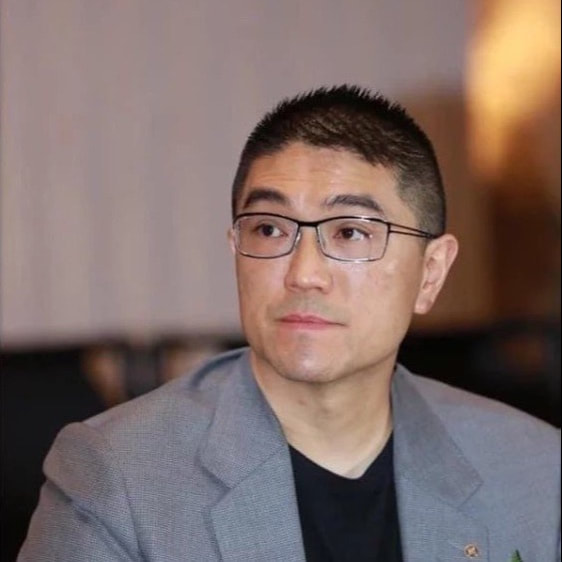
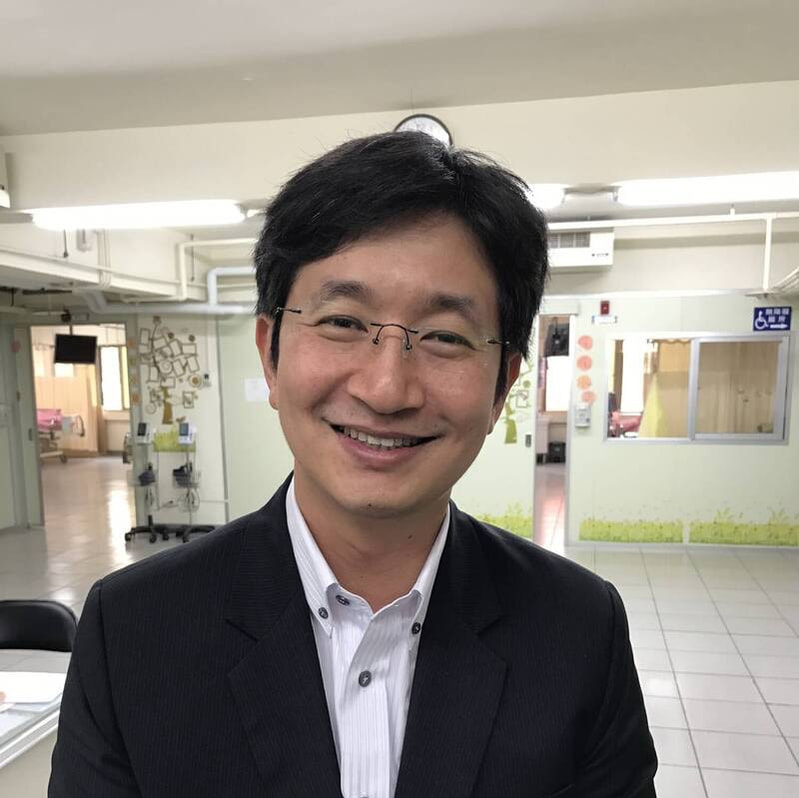
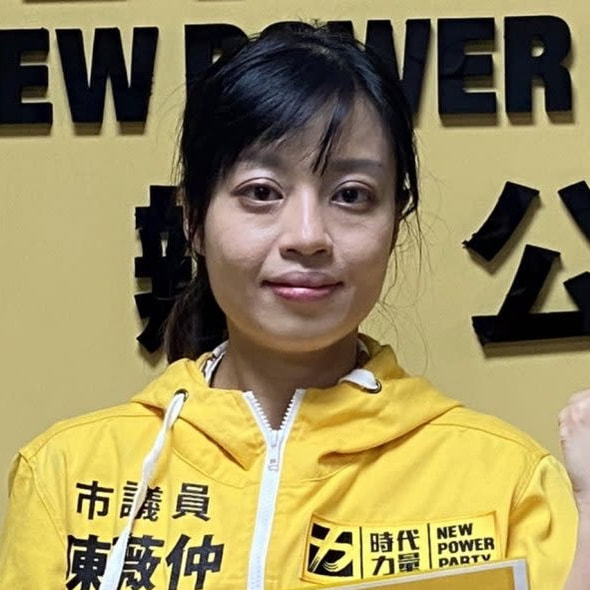
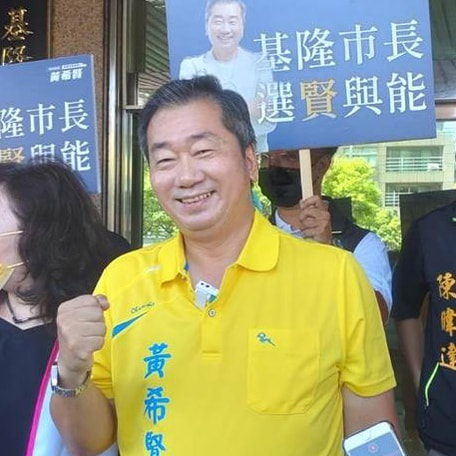

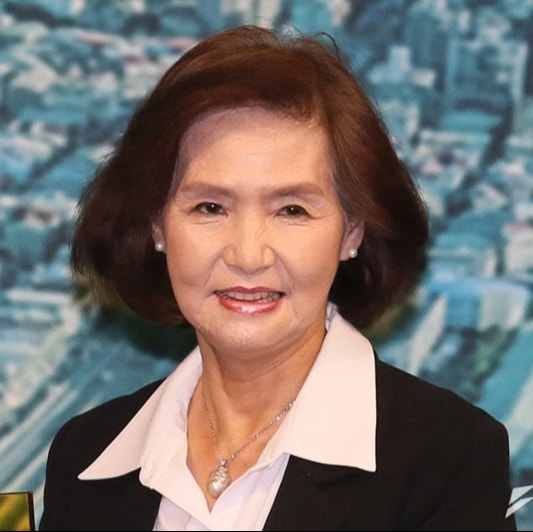
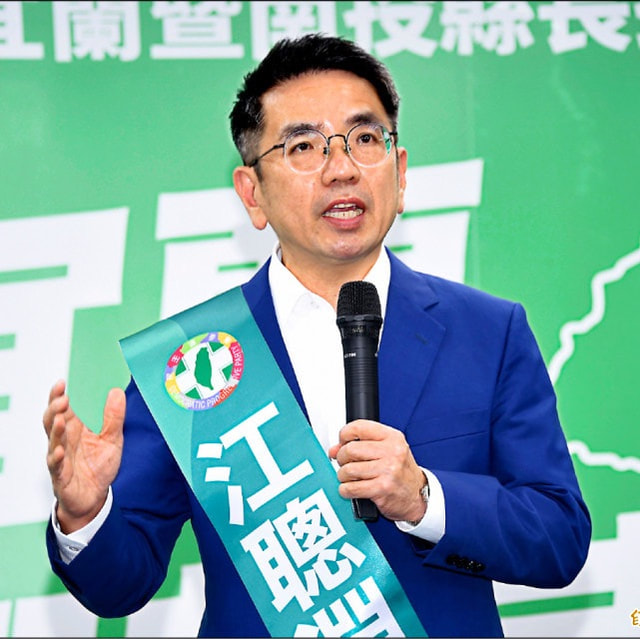
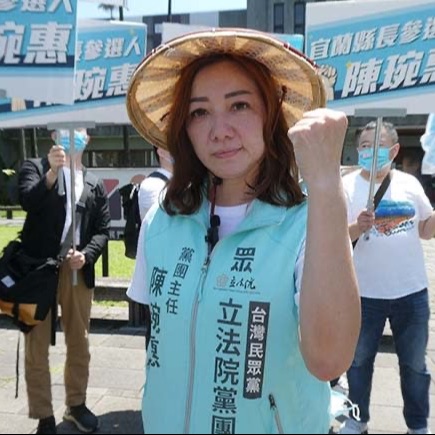

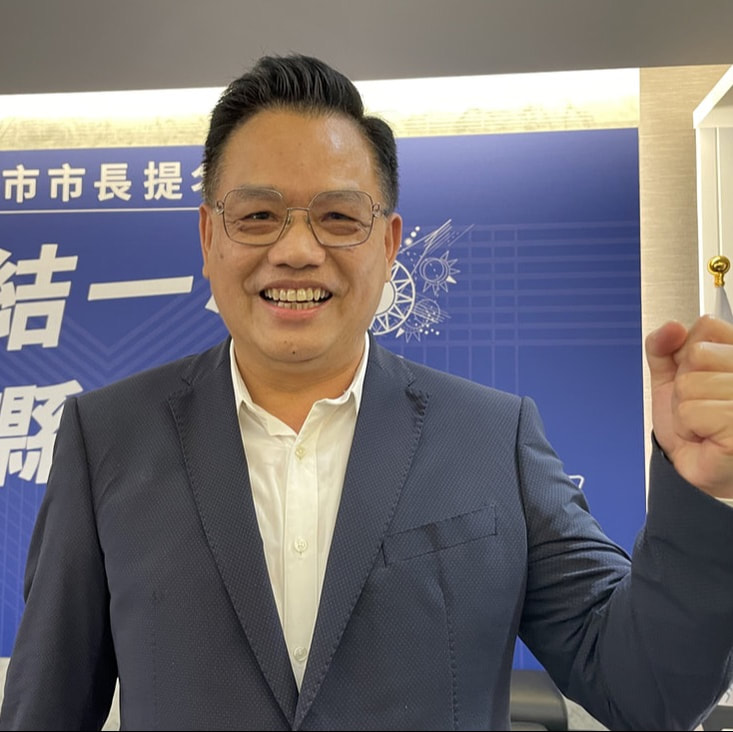

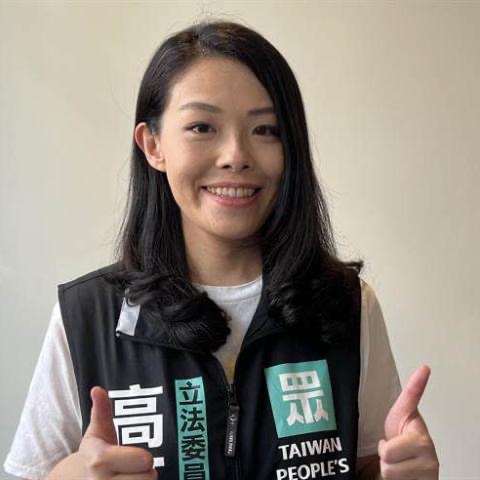

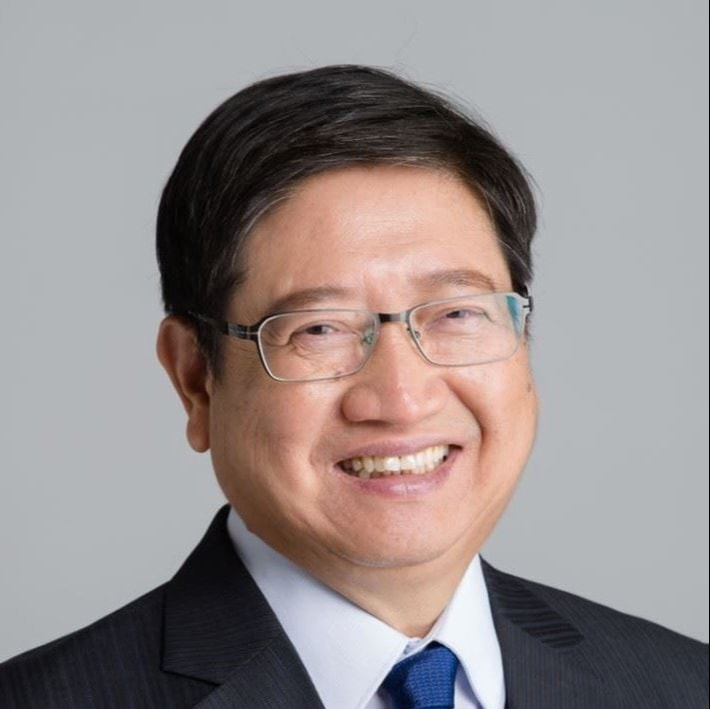
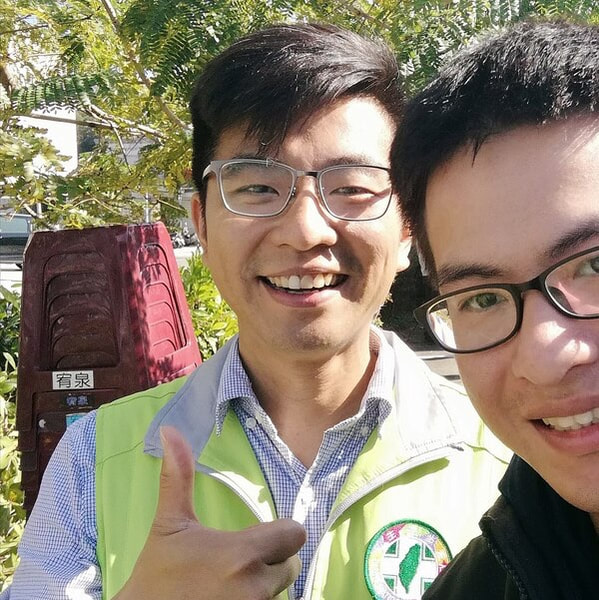

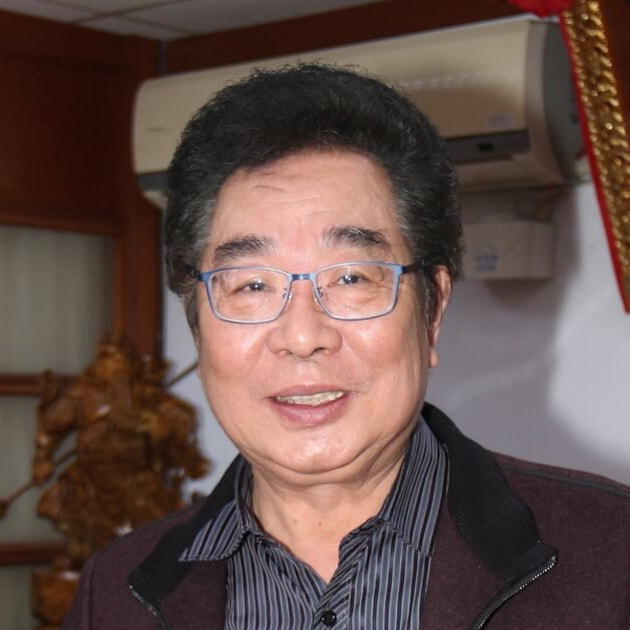
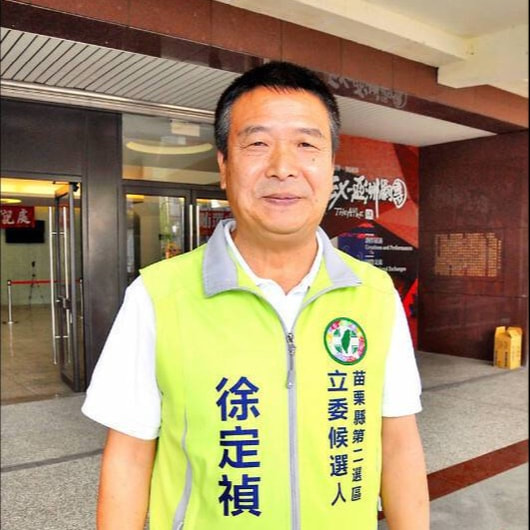

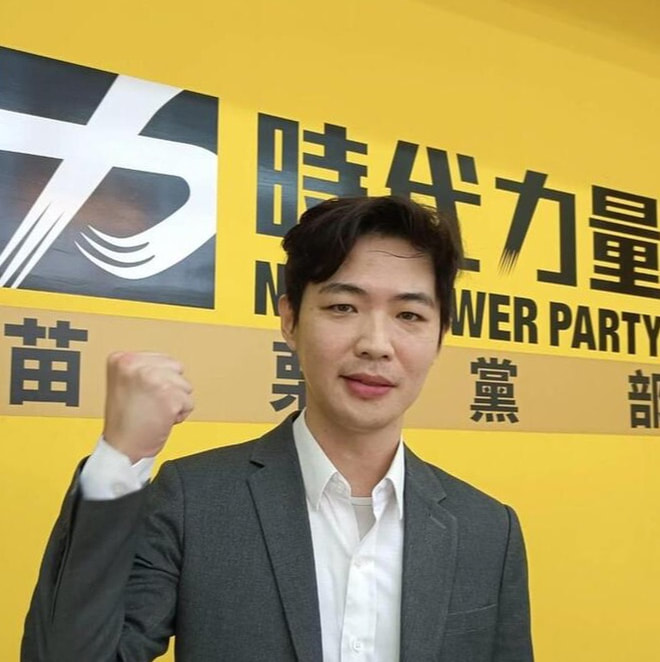

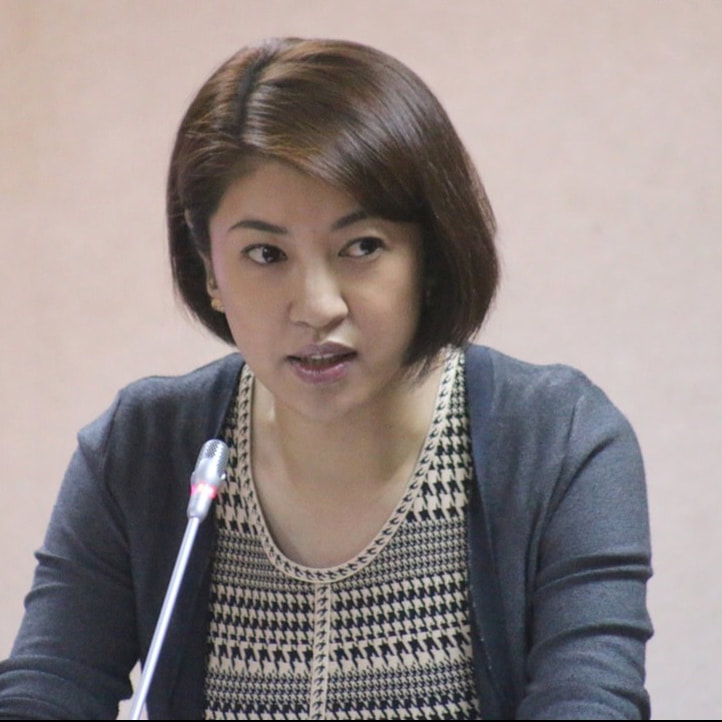
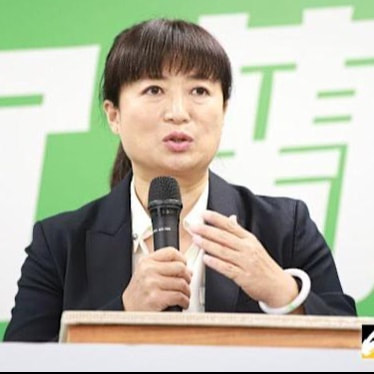

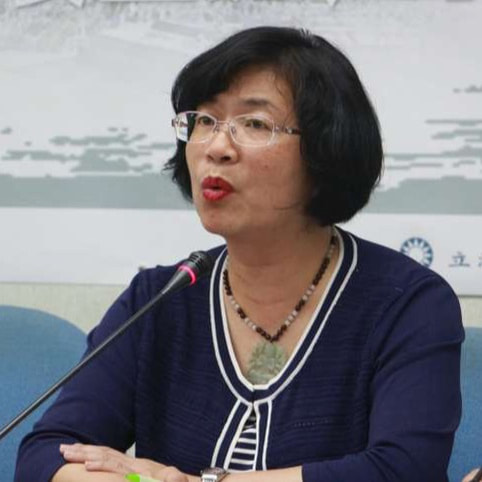
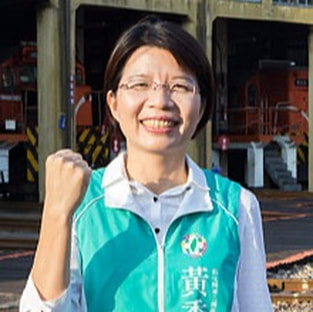

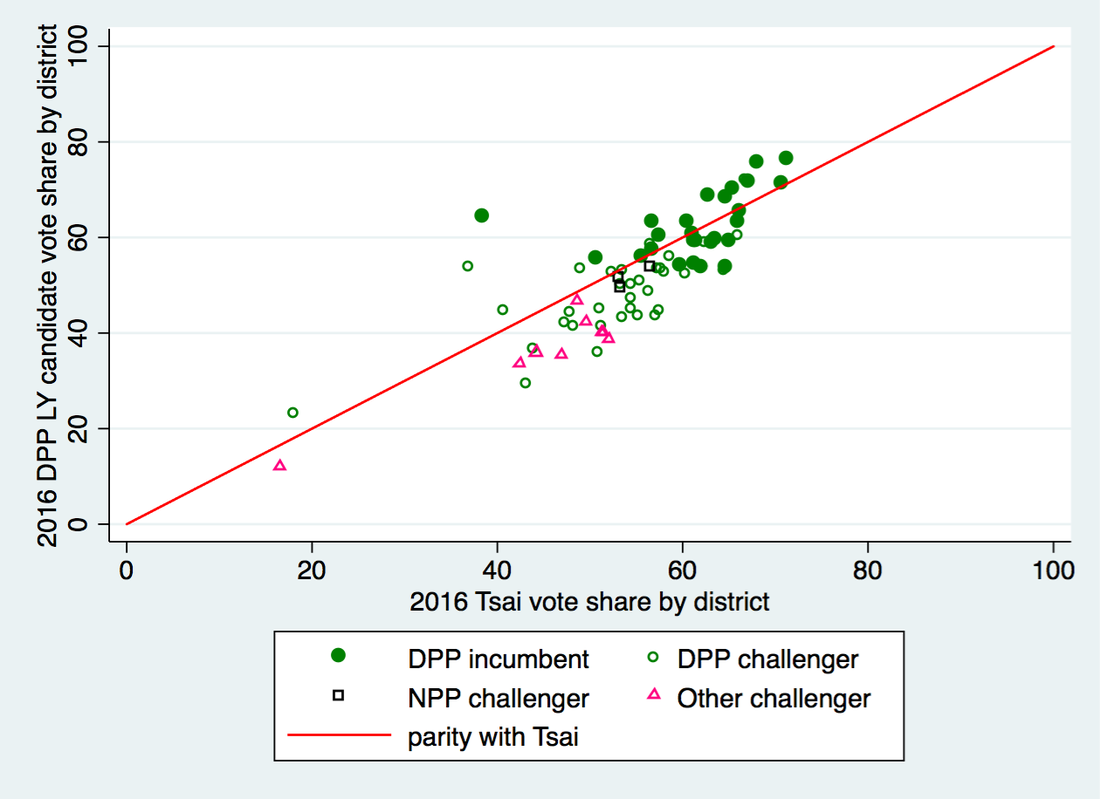
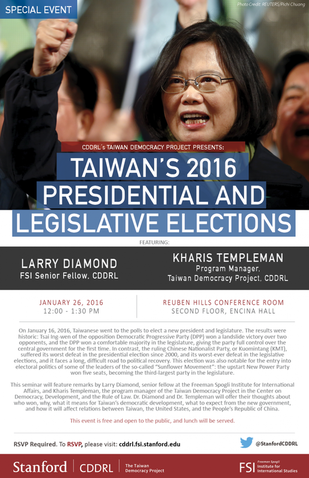
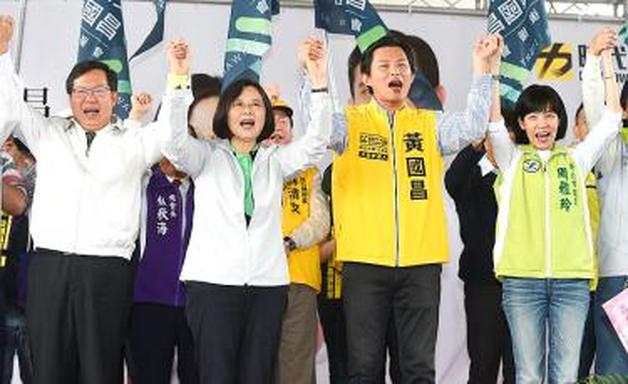
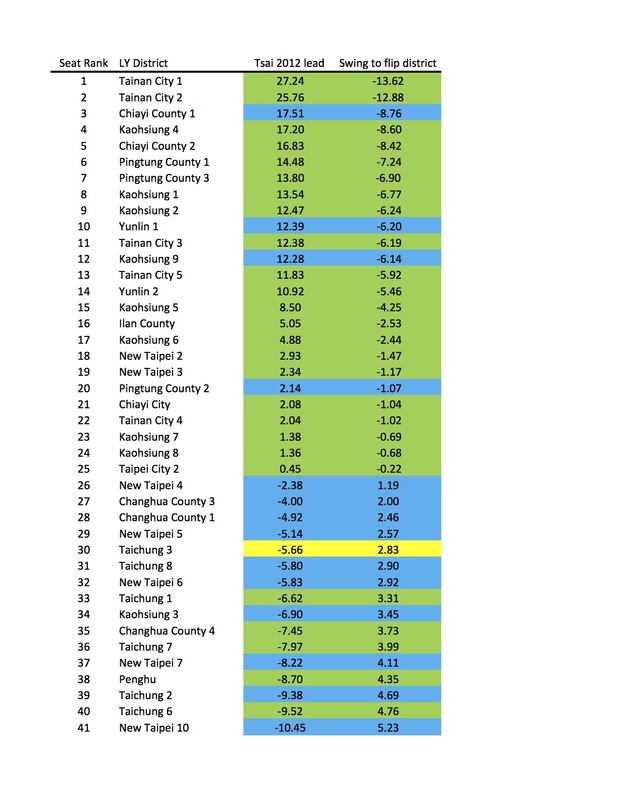
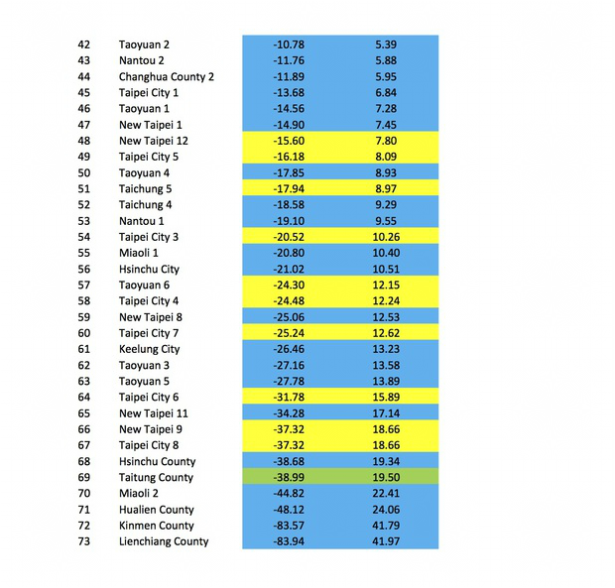
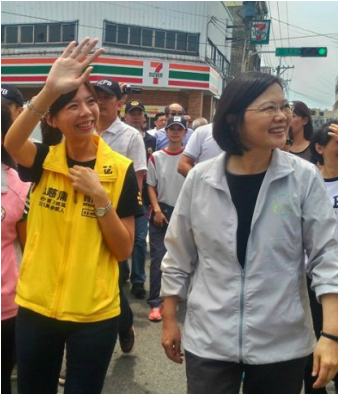
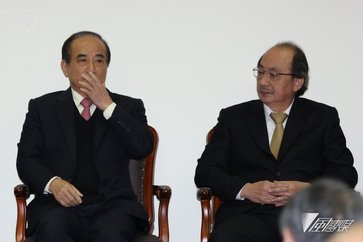
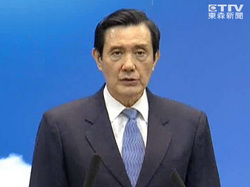
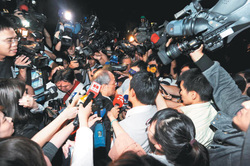
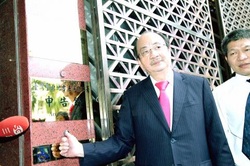
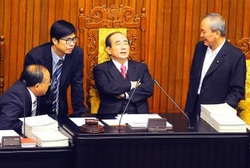
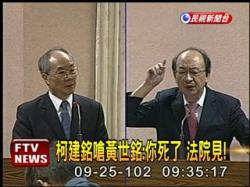
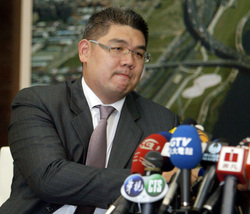
 RSS Feed
RSS Feed
